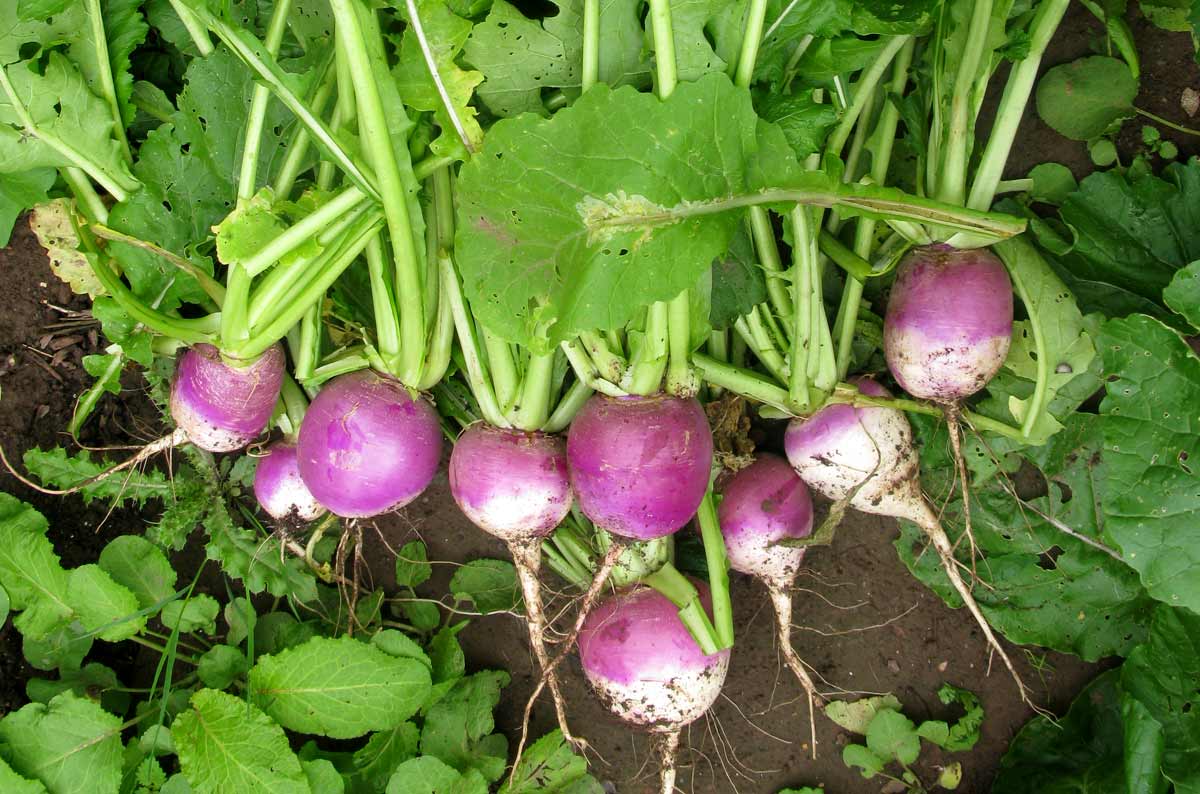 “Rube” was a label that Shakespeare and Mark Twain used to label rural folks. Since they ate Turnips, they must be Rubes! The Irish used turnips to cut like pumpkins. They thought it would keep evil spirits away. Ancient Romans threw them at unpopular politicians and leaders. These wonderful vegetables were labeled as oddballs, ugly ducklings, or just hated.
“Rube” was a label that Shakespeare and Mark Twain used to label rural folks. Since they ate Turnips, they must be Rubes! The Irish used turnips to cut like pumpkins. They thought it would keep evil spirits away. Ancient Romans threw them at unpopular politicians and leaders. These wonderful vegetables were labeled as oddballs, ugly ducklings, or just hated.
Turnips were once the food of Emperors and the wealthy. These root vegetables were also brought to Montana by early pioneers. Southern menus also include turnips. These hardy plants were durable and could be stored for longer periods of time. Most soups and stews would include this tasty and healthy food.
This healthy veggie is related to cabbage, rutabagas, and Bok choy. As a cruciferous vegetable, turnips are also related to Brussel sprouts, broccoli, and kale. These nutrient laden vegetables are healthy and great for heart issues but often hated by kids.
 My Aunt June used to serve turnips routinely from her garden. Their camp along the Potomac River was the home of many fish fries and fun meals. She always bragged about feeding her babies only the healthiest foods.
My Aunt June used to serve turnips routinely from her garden. Their camp along the Potomac River was the home of many fish fries and fun meals. She always bragged about feeding her babies only the healthiest foods.
For years I thought they were potatoes. She made them mashed, boiled, or as French fries. All of them were grown in her huge garden.
The turnip root has flavonoids, antioxidants, glucosinolates, and anti-inflammatory properties. This vintage vegetable was cultivated in Europe for over 6,000 years. A turnip is really two things in one. Both the root and leafy tops can be enjoyed.
One cup of cooked turnip has just 50m calories, 27 mg of vitamin CC and 5 grams of fiber. It is a perfect food for Hunting Camp. This plant is perfect for gut health. The plant fuels beneficial bacteria that help with quality digestion and bowel movements, essential for a healthy hunter or sportsman.
The leafy plant can be used in a salad or as lettuce. The root can be chewed as a spicy apple. Both are low in carbohydrates but loaded with healthful nutrients.
People that take Warfarin, a blood medication, should avoid Turnips. Apparently, vitamin K, which is found in turnips, can hinder blood clotting when mixed with the drug. Normal servings should not be a problem. Some people also have difficulty digesting uncooked turnips/ greens and cabbage in their stomachs. This means that bacteria instead break them down in the large intestine which results in gas. Cooked turnips reduce any explosive, gaseous results.
Eat healthy, be healthy!
Montana Grant



